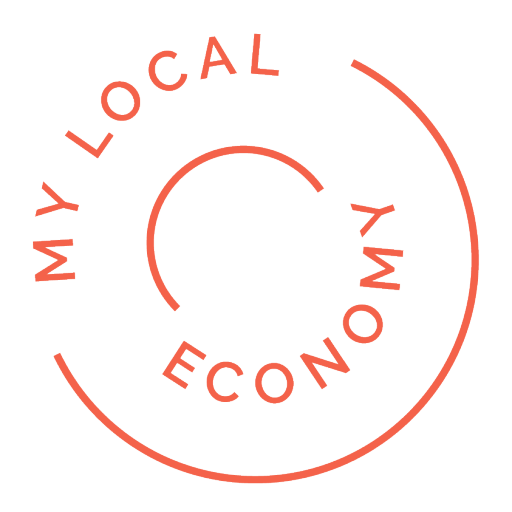It was my great pleasure to work with Cambridge Econometrics in 2023 to develop a Green Economy and Jobs Action Plan for the North of Tyne Combined Authority. I grew up in North Tyneside, and it was great to contribute to such a groundbreaking approach to climate change and the economy.
I’m going to summarise what we did, and what I learnt in the article below. But if you prefer video and audio – here’s an in-depth video (below) in which I describe the approach taken and how we did it. You can view the evidence base, reports and the final strategy and action plan on the Newcastle City Council website here.
A brief overview of the project, and what we learned, is described below.
Local needs – A Green Economy and Jobs Strategy and Action Plan
The North of Tyne Combined Authority and partners, including the managing authority for the project, Newcastle City Council set out some key aims for the project, as well as some principles which were developed from discussions with the project steering group.
The key aims were:
- A strategy and action plan which set out a practical agenda for delivery
- This is to be used to help guide the priorities and actions of partners as well as push the impetus for responding to climate change and taking early advantage of local strengths and capabilities
- It was meant to be as much of a prospectus to seek further funding and expand activities, as much as reflecting current activities and priorities
We established 4 principles early on to guide the format, structure and approach to the strategy and action plan:
- Aim is to pursue economic and jobs growth opportunities where the region has existing industry and market advantages, or there is emerging capability
- Business and jobs retention: managed transition to low carbon
- Just transition – inclusive and fair access to jobs and opportunities, retraining, and not disadvantage specific communities, individuals or places
- Enabling solutions at pace and scale – to meet the challenges of the low-carbon transition, will need to develop business, community, market and industry mechanisms and capabilities that can be quickly scaled up
What we did to develop the strategy and action plan
Local green economy strategies need to be based on a deep understanding of the local context. Myself and Cambridge Econometrics undertook a comprehensive analysis of the economy, and existing strategies and studies.
Economic modelling can be used to identify potential economic opportunities and challenges associated with the transition to a low-carbon economy. Cambridge Econometrics has a world-leading approach to modelling the economic transition of climate change, and this was used to understand where the job opportunities would come from, and where we need to be aware of structural change in the economy.
Practical project examples can help to illustrate how the green economy can be implemented in a real-world setting, and inform ideas for developing the action plan. We used local project examples as well as sourcing from national and international practice.
The socio-economic context was considered in order to ensure that the transition does not disproportionately impact any particular group of people or communities.
Key lessons from our approach
Ambition and pragmatism are both important in addressing climate change. We need to be ambitious in our goals, but we also need to be pragmatic in our approach. This means using project examples to identify practical policies and interventions, and incorporating existing or planned initiatives.
Public and private sector scaling up is necessary. We need to move beyond the current crop of small-scale projects if we want to transition to net zero. This will require scaling up the public sector response, as well as the market and private sector response.
A just transition is critical. We need to deal with the economic restructuring and inequality that will be caused by the transition to a low-carbon economy. This means ensuring that everyone benefits from the transition, and that no one is left behind.
A low-carbon economy will look different from the one we have today. It will be characterized by energy efficient buildings, green walkable neighborhoods, flexible zero-carbon transport, sustainable consumption, a circular economy, and abundant clean energy. This looks quite ambitious and the scale of change is significant in some areas, but if we’re serious about addressing climate change, we need to go with it, and start delivering.
Six missions to accelerate the path to net zero and secure the economic benefits and jobs from the green economy
There are six missions and 22 actions which, once fulfilled, will accelerate the path to net zero, and enhance the economic benefits, growth, and jobs from the green economy:
MISSION 1: Maintain and develop market leadership, where the region leads in industries such as Offshore Wind Energy, EVs, Battery manufacturing and Agriculture
Objective 1.1: Attract and grow major international green businesses and jobs
Objective 1.2: Value chain development
Objective 1.3: Support growth capable firms in leading green industries
Objective 1.4: Support land-based and agricultural industries in their net zero transition
Objective 1.5 Leadership academy to improve leadership and management practice across public and private sectors
MISSION 2: Secure market share in emerging markets, where the North East has a Comparative Advantage and capability
Objective 2.1: Support emerging business and industry capability
Objective 2.2: Scale up market demand and delivery for low carbon and environmental goods and services
Objective 2.3: Scaling the digital and data enablers for net zero
Objective 2.4: Circular economy
MISSION 3: Boost green innovation and cleantech entrepreneurship
Objective 3.1: Boost green entrepreneurship
Objective 3.2: Green innovation
MISSION 4: Scale up markets and the business transition where the economic potential is greatest and outcomes can be equitable
Objective 4.1: Scale-up demand
Objective 4.2: Scale-up supply
Objective 4.3: Secure investment
Objective 4.4: Business transition
Objective 4.5: Foundational economy
MISSION 5: Provide the core and agile skills and careers guidance to support employers and residents through the low carbon transition
Objective 5.1: Develop the core skills for entry-level jobs and career progression
Objective 5.2: Agile skills funds that respond to net zero economy needs as they become apparent
Objective 5.3: Careers and skills guidance for net zero jobs and skills
MISSION 6: A just transition for key employers, displaced workers and communities.
Objective: 6.1: Strategic employers
Objective: 6.2: Rural Transition
Objective: 6.3: Displaced workers
You can read the final strategy and action plan on Newcastle City Council’s website here.
About Glenn
Glenn runs his own consultancy, Mylocaleconomy. We help local leaders translate their economic ambitions into winning advocacy and solutions that get funded. We work all over the UK – from the Highlands of Scotland to Wales, Bristol, Teeside, North East England, Gloucestershire, London, Cambridgeshire and Sussex.
We love challenging assignments, complex opportunities, and intractable problems. Our vocation is to help city, region and local economies succeed and for prosperity to be sustainable and shared.
Get in touch via LinkedIn messaging, call 07799880137, or use the contact form on our website.

